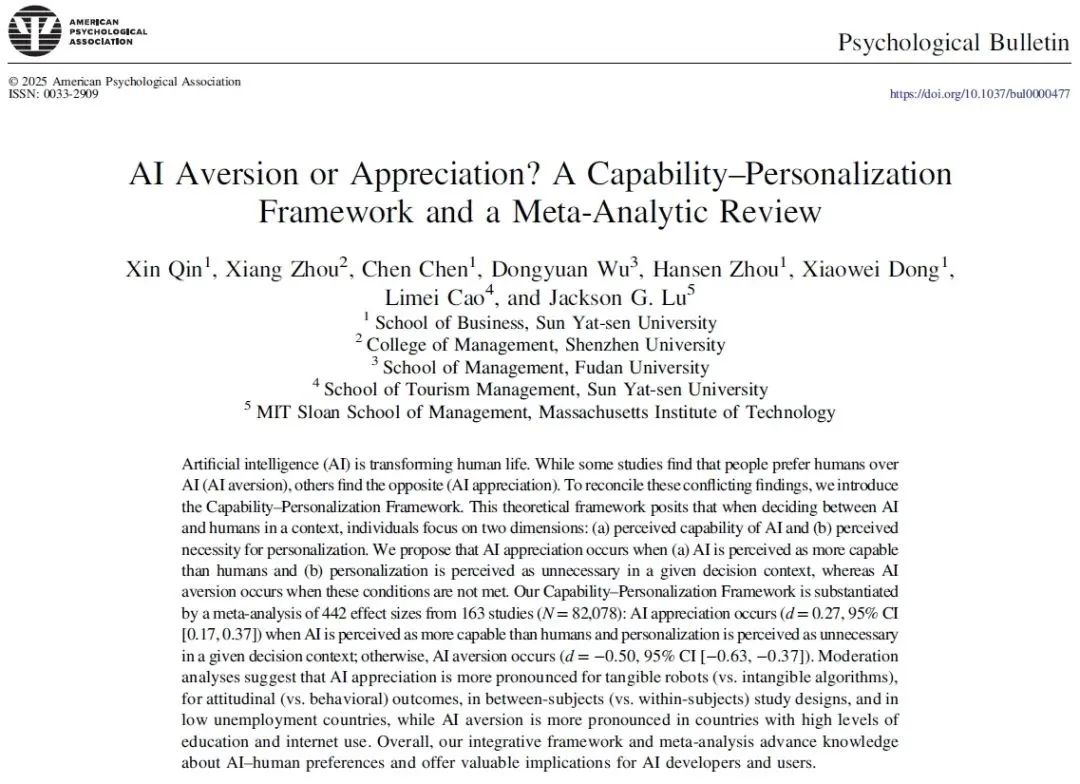For the first time, the mystery of AI aversion or appreciation has been unraveled by a research team led by Professor Qin Xin of our school, which proposed a new theoretical framework
Recently, a research team led by Professor Qin Xinof the School of Business, Sun Yat-sen University proposed the "Capability-Personalization Framework". This framework elucidates the fundamental issue of when humans exhibit aversion or appreciation toward AI. The study was published in Psychological Bulletin, one of the top journals in the field of psychology. It is worth noting that since its establishment in 1904, only a few papers from domestic universities have been published in this journal as the first author institution. Moreover, this wok represents the first article in the journal addressing the theme of AI.

The findings of this study providesignificant insights into thepractical challenges. First, AI developers and users should pay attention to the balance between AI's capabilities and personalized needs in real-world application contexts, rather than exclusively focusing on enhancing AI's technical capabilities. At the same time, the public should recognizethat aversion to AI may arisefrom subjective psychological biases rather thaninherent deficiencies in AI. Therefore, it is essential to adopt a more rational and balanced perspective when evaluating AI-driven decisions. In summary, this study not only provides a systematic theoretical frameworkfor understanding the complex human attitudes toward AI, but also offers important practical references for the in-depth application and sustainable development of AI technology in various social fields.


